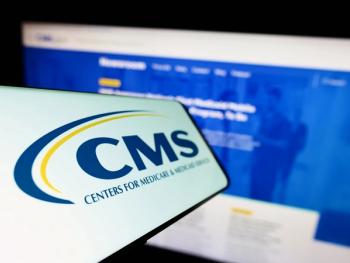
Clinical Trials Begin of Gene Therapies for Rett Syndrome
Two investigational therapies for Rett syndrome, using different technologies, aim to control expression of the delivered gene and avoid the adverse events associated with conventional gene therapy.
The first two patients with Rett syndrome have been dosed with a new gene therapy developed by Neurogene. Two girls with the rare disease received NGN-401 at Texas Children’s Hospital, which is affiliated with Baylor College of Medicine.
Rett syndrome is a rare neurologic disorder that occurs mostly in girls. It is caused by mutations in the MECP2 gene that lead to deficiency of the methyl cytosine binding protein 2, an important protein responsible for normal function in the brain and other parts of the nervous system. Girls born with Rett syndrome typically have normal development until 6 months to 18 months of age. Over time they develop muscle contractures, rigidity, and scoliosis, along with recurrent seizures, gastrointestinal and breathing abnormalities. It has an estimated worldwide incidence of 1 out of every 10,000 to 15,000 live female births.
The first treatment for Rett syndrome was
Neurogene’s NGN-401 is an adeno-associated virus (AAV) gene therapy that delivers the full-length MECP2 gene to cells. The therapy uses the company’s novel Expression Attenuation via Construct Tuning (EXACT) gene regulation technology, which provides controlled and consistent MECP2 expression on a cell-by-cell basis. The goal is to avoid overexpression and the related toxicities associated with conventional gene therapy. Nonclinical studies with NGN-401 have shown that the gene therapy address Rett syndrome with no overexpression toxicity.
“While gene therapy has proven to be a powerful tool in the treatment armamentarium for a number of devastating genetic conditions, the highly variable transgene expression associated with conventional gene therapies has limited its application in many complex neurological disorders, especially in Rett syndrome, in which MECP2 transgene overexpression is toxic,” Bernhard Suter, M.D., principal investigator and associate professor of Pediatrics and Neurology at Baylor College of Medicine and Texas Children’s Hospital, said in a
The single-arm, phase 1/2 clinical trial is evaluating the safety and tolerability of NGN-401 in girls between the ages 4 and 10 with Rett syndrome. NGN-401 is administered as a one-time treatment directly into the cerebral ventricles to allow it to reach cerebrospinal fluid.
Neurogene expects to dose a third patient in the first quarter of 2024. The first cohort in the trial is expected to enroll five pediatric patients, with a planned expansion pending additional data. Interim analysis of the first cohort is expected in the fourth quarter of 2024.
In the two patients dosed so far, NGN-401 has been well tolerated with no treatment-emergent or procedure-related serious adverse events and no observations of transgene-related overexpression.
A trial of separate gene therapy, developed by Taysha Gene Therapies, began in June 2023. TSHA-102 is being studied in a phase 1/2 trial in adults with Rett syndrome. TSHA-102 is a AAV9 gene therapy that is delivered to the intrathecal space that holds the cerebrospinal fluid. It uses a novel miRNA-Responsive Auto-Regulatory Element (miRARE) platform designed to regulate cellular MECP2 expression.
In June, the first adult patient was dosed and a second patient was dosed in September 2023. The REVEAL adult trial is being conducted at CHU Sainte-Justine, the Université de Montréal mother and child university hospital center in Montreal, Canada, under Principal Investigator Dr. Elsa Rossignol, M.D., FRCP, FAAP, Associate Professor Neuroscience and Pediatrics at CHU Sainte-Justine.
The company expects to begin a clinical trial in the first quarter of 2024 in pediatric patients.
Newsletter
Get the latest industry news, event updates, and more from Managed healthcare Executive.























